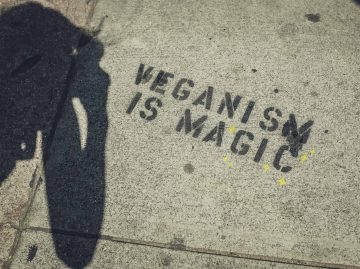News
Veganuary: The Start of a New You?

January is often a time for lifestyle change as traditions are made and people seek to improve their mental and physical wellbeing. So, what about Veganuary?
Often diet comes under the microscope, with veganism growing in popularity for many reasons, including from an ethical and healthy eating perspective.
January marks a push to change people’s perceptions of veganism and encourage them to give it a go by taking on Veganuary!
What is Veganuary?
Veganuary is an annual challenge run by a UK non-profit organisation that promotes and educates about veganism by encouraging people to follow a vegan lifestyle for the month of January.
In 2021, a record 500,000 people have already pledged to eat only vegan food in January with fast food chains releasing new lines targeted specifically at those taking part.
What does it actually mean to be vegan?
The word vegan refers to anything that is free of animal products and by-products, so no meat, fish, milk, cheese, eggs, wool, leather, silk or honey.
Being vegan is not just about what you eat but is a lifestyle choice and world view centred on seeing life as a phenomenon to be treasured, revered and respected. Vegans see themselves as a part of the natural world, rather than its owners or its masters.
What are the benefits of being vegan?
Turning vegan is a massive shift away from more conventional diets, however the benefits are many:
- A well planned and maintained vegan diet is richer in certain nutrients such as fibre, antioxidants, potassium, magnesium, folate and vitamins A, C and E due to the reliance on whole grains, fruits, vegetables, beans, peas, nuts and seeds as a substitute for animal-based products.
- Vegans tend to be thinner and have lower body mass indexes (BMIs) than non-vegans and participants in a recent study lost more weight on the vegan diet than those who followed calorie-restricted diets.
- Vegans tend to have lower blood sugar levels, higher insulin sensitivity and a lower risk of developing type 2 diabetes.
- Eating fresh fruits, vegetables, legumes and fibre is also linked to a lower risk of heart disease.
- Research has shown that those who eat whole, plant foods report fewer symptoms of depression.
For more benefits, click here.
Top tips for going vegan
For many, the long list of things you can't have can seem daunting and off-putting. But the alternatives available can be just as good, if not better. Here's some tips for making the change:
- Try swapping milk for a tasty alternative. There are many options available including soya, almond, oat, coconut, and hazelnut.
- There are a few great apps available that can make shopping for vegan products easier, or even help you to find vegan restaurants, cafes and/or takeaways close to you.
- Some of your favourite products may already be vegan (like Oreos and Ritz crackers). You can find a helpful list of 'accidentally vegan snack foods' here.
- Most major supermarkets now have a 'Plant-Based' section in the fridge, freezer and regular aisles, which makes it super easy to find vegan substitutes for your favourite staples.
If you’re considering going vegan, take a look at this very useful PETA vegan starter pack which is packed with ideas.
